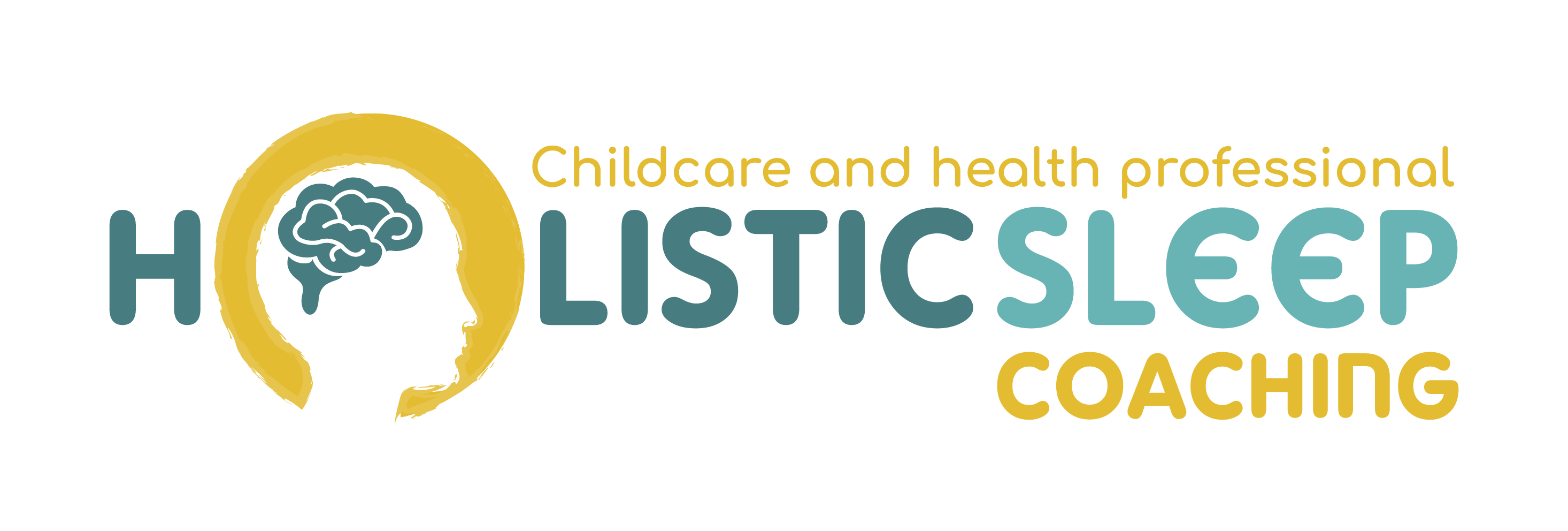Welcome to this week’s blog “So You Want to Be a Gentle Sleep Consultant?”— your definitive guide to a rewarding career in gentle sleep consulting. This blog is crafted for those in the UK who are contemplating how to become a certified sleep consultant. Whether you’re exploring what a sleep consultant does or you’re ready to embark on the path toward becoming a gentle sleep consultant yourself, you’ve come to the right place. In this blog, I will detail the nuances of gentle sleep consulting, highlighting the substantial demand for this compassionate approach, and providing you with the insights and strategies needed to support families effectively. Join me as we explore the transformative approach of gentle sleep consulting that prioritizes responsiveness, infant mental health, and the cultivation of strong parent-child bonds. If you prefer watching to reading, click on the video below for a visual overview of what it means to be a gentle sleep consultant.
The Rise of the Sleep Consultant
Increasingly, parents are seeking support with their child’s sleep. This trend isn’t necessarily indicative of more sleep problems among children; rather, it reflects a growing acceptance of seeking help in challenging aspects of our lives. Parenting, particularly the area of sleep, is where many find themselves needing guidance and support to gain confidence and achieve a sense of mastery. As a sleep consultant in the UK, my role involves listening to families’ challenges, providing education, and equipping them with the necessary tools. This helps them devise tailored strategies to manage their unique situations effectively. If you’re looking to become a gentle sleep consultant or explore what a sleep consultant does, understanding these dynamics can be pivotal.
Supporting parents who don’t want to use non-responsive sleep training
Until fairly recently, most parents were only aware of the mainstream approach to sleep – which is non-responsive sleep training, usually involving leaving babies or children to cry, avoiding eye contact, premature night weaning, and ignoring nighttime child signaling. For the parents who didn’t feel comfortable with that, their only option was to ride it out.
But in recent years, more and more parents have rejected mainstream, non-responsive approaches, as they often conflict with parental instincts, and are not always compatible with an otherwise responsive and attachment-focused approach to parenting as a whole. Leaving children crying, ignoring their communication, and being robotic is stressful for both parents and children, often disrupts breastfeeding, and doesn’t even always work. The parent demand for a third option has given rise to a massive increase in awareness of another approach to sleep. One that neither involves crying it out, or waiting it out.
Defining ‘gentle’

Now, ‘gentle’ is a subjective term. One person’s gentle might be another person’s harsh. So there is no standard definition of this term. This leaves a lot open to interpretation, and to be honest, it can cause confusion as well. Bear in mind that gentle sleep consulting sits under the broad umbrella of general sleep consulting, and many sleep consultants have variable ideas about what is broadly classified as non-responsive sleep training, what is sleep education, and what is a gentle approach.
Some people use sleep training as an umbrella term for any form of sleep support, including gentle sleep support. Other people interpret sleep training as a non-responsive approach, thanks to the use of the word ‘training’, which implies a directive, parent-led style, and also suggests that sleep is a skill that can be taught – a concept that is at odds with many of us in the gentle sleep space who know that sleep is simply a feature of the parasympathetic nervous system, and does not need to be taught per se.
There’s some caution required because sometimes sleep trainers using non-responsive approaches will offer so-called ‘gentle sleep training’, which again is open to interpretation, but may involve controlled crying – they justify this as ‘gentle’ because the parent returns to check on their crying child every few minutes, as opposed to cry it out, where they shut the door and do not return until the morning.
Of course, this can lead many parents to choose a sleep support option that they were hoping would be responsive and gentle, only to find it’s really not responsive at all.
What is the alternative to sleep training?
So what is gentle sleep consulting then? Well, this is usually intended to be the general term for an approach that centres responsiveness, values parental instinct, and prioritises infant mental health and attachment. Truly gentle sleep consultants avoid strategies that involve unsupported infant or child crying, developmentally inappropriate suggestions such as premature night weaning, withholding responsiveness or emotional support, or using punishment and rewards.
Instead, they tend to listen to parent goals and work out a sustainable way to move towards it in a respectful, age and developmentally-appropriate way, that maintains connection and doesn’t threaten parent-child trust or bonding. This might include looking at aspects of the child’s day, their napping rhythm, bedtimes, optimising sleep hygiene, preparing children for sleep changes, and breaking the sleep transition into manageable stages. It also involves tailoring the plan to a child’s temperament and personality, providing options, and being flexible about timescales.
Is gentle sleep consulting effective?
But now the million-dollar question… does it work? I get asked all the time whether gentle sleep solutions actually work, or are they just about sympathising with how hard it is to be exhausted while making no difference to the sleep situation whatsoever?
Well, this is an interesting question. Firstly, it’s interesting because we need to define success, and that might look different for each family. Secondly, I don’t think we can compare non-responsive sleep training outcomes with gentle sleep consulting outcomes – they’re often aiming to achieve different things. And thirdly, because there are a lot of misconceptions about how effective non-responsive sleep training is. So let’s break down those three parts…
How we define sleep success
Mainstream sleep training has done a pretty good job of making people believe that all babies should sleep 12 hours straight by 6 months at the latest, and have a 2-hour nap in their crib or cot. So if you use that as your success benchmark, many sleep outcomes will fall short. But increasingly, people are realising that these are not universally developmentally appropriate or achievable outcomes. Not all infants and children need the same amount of sleep, even when you compare children at the same age, there is no empirical evidence that all infants can sleep through without a feed at 6 months, and shorter naps are normal, common, and perfectly adequate for millions of little ones.
If you define success by achieving sleep sustainability, improving parental mental health, building parent confidence, reducing the number of wake-ups to a manageable number, and reducing the stress around naps and bedtime – then absolutely gentle sleep consulting is effective.
Comparing apples and oranges

The tendency to compare outcomes between sleep approaches continues sadly, which is problematic, as the very philosophy behind the approaches is different. One approach boasts of uninterrupted sleep at any cost, while the other aims for manageable and biologically optimal sleep. The intention behind the approaches is different. One only considers sleep in certain locations and for certain durations a success, while the other accepts that sleep looks and feels different for different people. One approach looks for absolute numbers, while the other explores nuance, feelings, and subjective success.
But ultimately, we need to address the elephant in the room – the fact that many parents are just not prepared to achieve sleep at any cost. Many parents would not consider it a success for their child to not wake them in the night even if they really wanted to. We’re talking about parents with a different definition of success here. These parents aren’t necessarily looking for 12 hours straight or quick fixes – they’re looking for something that is more individualised, subtle, and sustainable.
Myths about the effectiveness of sleep training
The other reality check here is that despite the widespread belief that non-responsive sleep training ‘works’ within 3 days, this might not be true. People are often led to believe that it’ll be tough to listen to their little one crying, but 3 days is all it takes. Leaving aside the debate about whether you agree with this, what about the accuracy of that timescale?
A recent study by Kahn and colleagues in 2023 found that cry it out – which is often considered to be the fastest way to improve sleep – took on average 25 days to implement.
You heard that right. Not 3, 25. And it was almost 10 days before there was even an improvement in sleep. And before you ask, yes, they also compared strategies that involved parental presence, and while this took longer – almost 15 days to see improvement and 43 days on average… many parents would consider this absolutely a compromise worth making if it meant they didn’t have to ignore their parental instinct to offer comfort to their child who was having a hard time.
Is it for you?
So, what’s the take-home for you I wonder? Ultimately, if you want to be a sleep coach, it makes sense to offer a service that feels aligned with your personal philosophy. If you wouldn’t try it with your own child, arguably, you shouldn’t be offering this as an option to your clients. That’s said with no judgment. Gentle sleep consulting isn’t for everyone, and that’s ok.
But if you’ve wanted to get into sleep for a while, and have been put off by the idea that you’d have to recommend non-responsive sleep training, or else be ineffective, the great news is that neither of those things is true. Gentle sleep solutions ARE out there, they work well, and what’s more, parents are asking for them.
Finally, if you’re interested in supporting families in not just a gentle way, but with an approach that considers all the wider aspects of sleep, health, relationships, development, and family life, then you can book a call with our team – to find out more about the holistic sleep coaching program.

